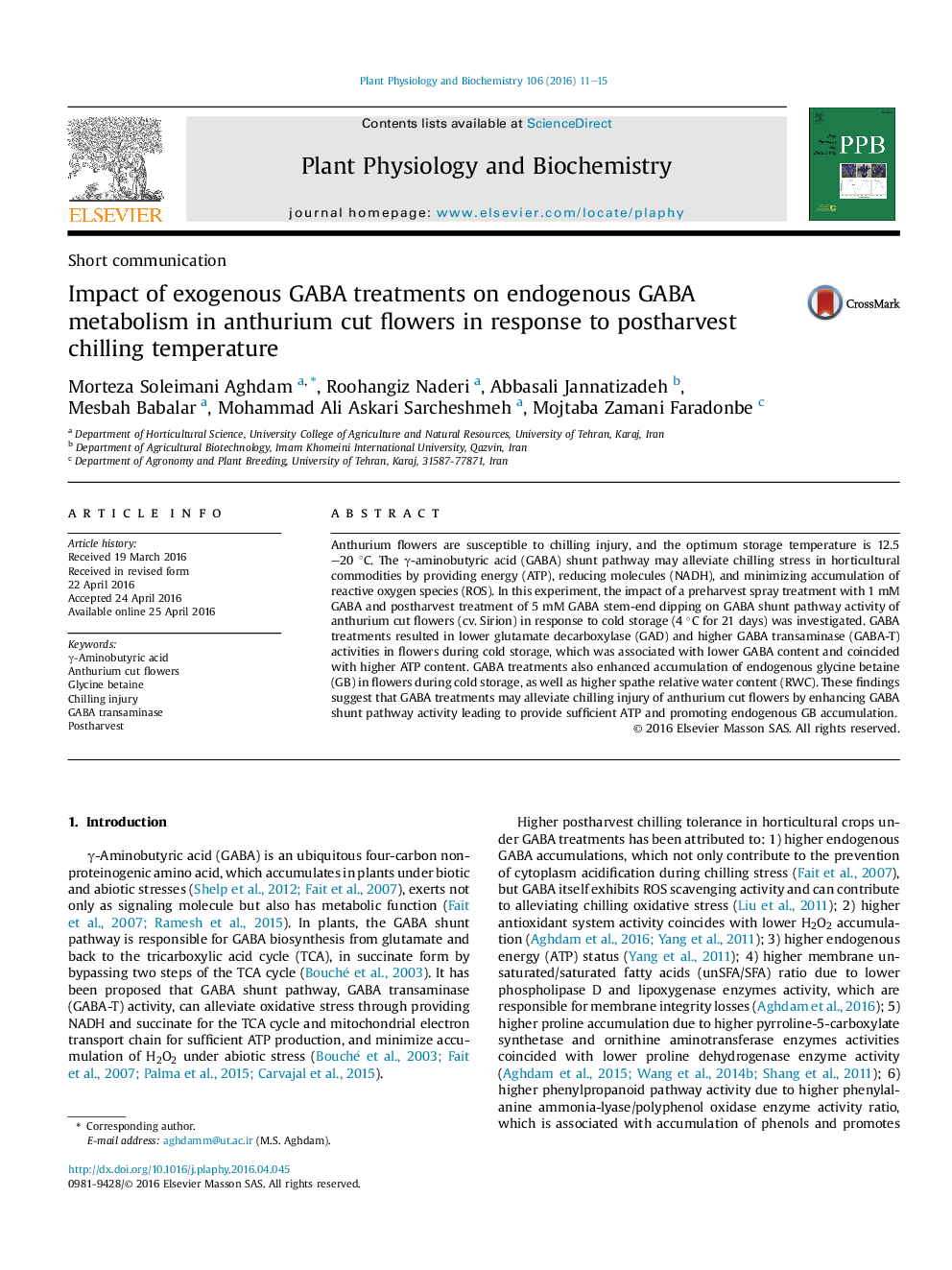| Article ID | Journal | Published Year | Pages | File Type |
|---|---|---|---|---|
| 8353832 | Plant Physiology and Biochemistry | 2016 | 5 Pages |
Abstract
Anthurium flowers are susceptible to chilling injury, and the optimum storage temperature is 12.5-20 °C. The γ-aminobutyric acid (GABA) shunt pathway may alleviate chilling stress in horticultural commodities by providing energy (ATP), reducing molecules (NADH), and minimizing accumulation of reactive oxygen species (ROS). In this experiment, the impact of a preharvest spray treatment with 1 mM GABA and postharvest treatment of 5 mM GABA stem-end dipping on GABA shunt pathway activity of anthurium cut flowers (cv. Sirion) in response to cold storage (4 °C for 21 days) was investigated. GABA treatments resulted in lower glutamate decarboxylase (GAD) and higher GABA transaminase (GABA-T) activities in flowers during cold storage, which was associated with lower GABA content and coincided with higher ATP content. GABA treatments also enhanced accumulation of endogenous glycine betaine (GB) in flowers during cold storage, as well as higher spathe relative water content (RWC). These findings suggest that GABA treatments may alleviate chilling injury of anthurium cut flowers by enhancing GABA shunt pathway activity leading to provide sufficient ATP and promoting endogenous GB accumulation.
Keywords
Related Topics
Life Sciences
Agricultural and Biological Sciences
Plant Science
Authors
Morteza Soleimani Aghdam, Roohangiz Naderi, Abbasali Jannatizadeh, Mesbah Babalar, Mohammad Ali Askari Sarcheshmeh, Mojtaba Zamani Faradonbe,
